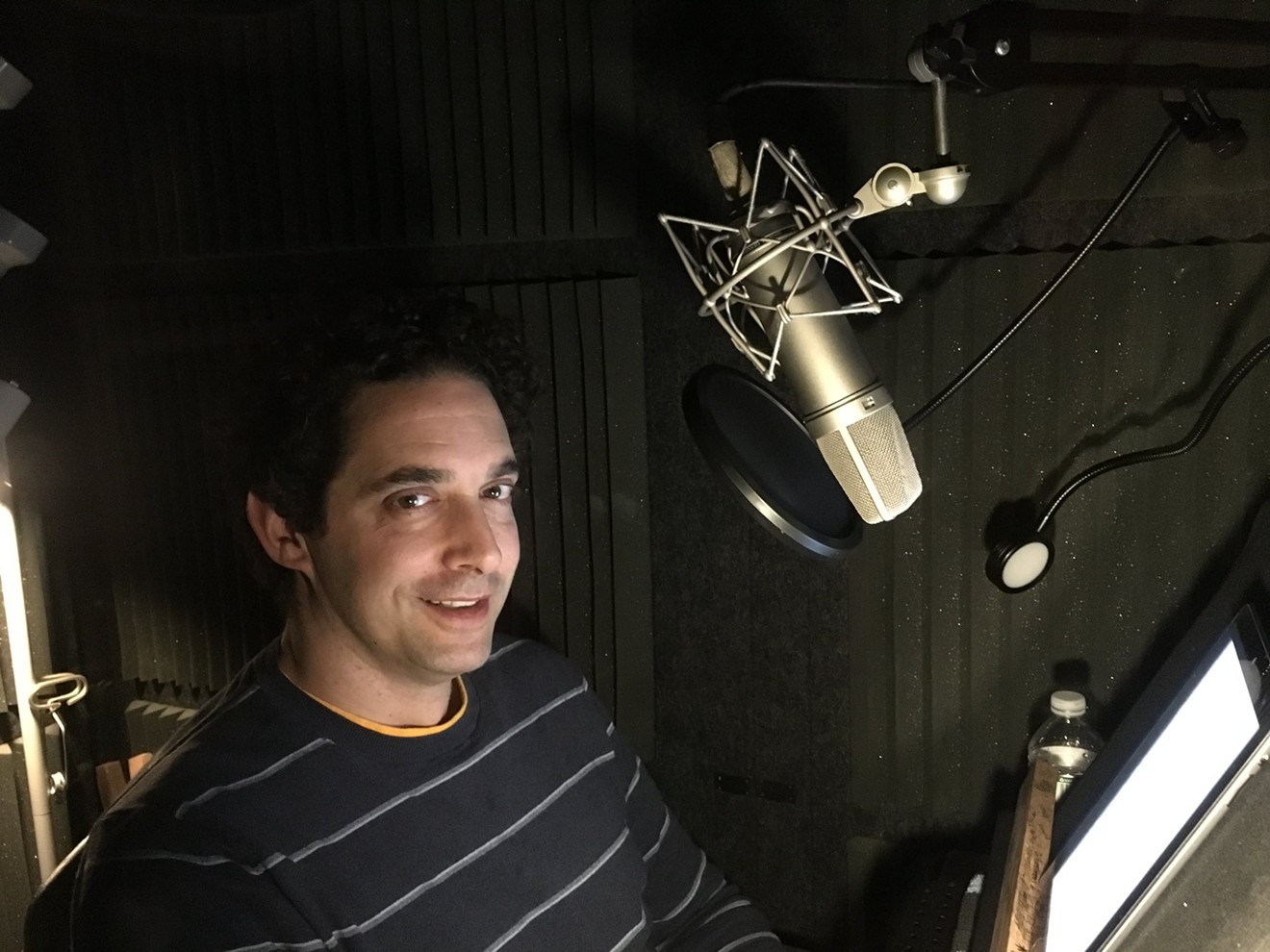Author and investigative reporter Alex Berenson spoke at Arapahoe High School on Tuesday, March 19, on a stop on the tour for his new book,Tell Your Children: The Truth About Marijuana, Mental Illness, and Violence.
But the evening provided anything but the truth, the whole truth, and nothing but the truth.
The event, sponsored by Children’s Hospital Colorado, Colorado Politics and Smart Colorado, was geared to an audience of parents, teachers and community leaders, and Berenson promised “information and enlightenment” about the dangers of marijuana use. Tell Your Children argues that only a small fraction of doctors authorize medical marijuana, that marijuana use is linked to opiate and cocaine use, and, most disturbingly, that marijuana causes psychotic episodes that often lead to violent acts. But while Berenson offers some data to back up these assertions, the context of that data isn't always presented, leading to half-truths...or worse.
Like his book, Berenson's talk labeled the so-called benefits of marijuana as nothing more than myths used to fuel the movement for legalization.
He opened the evening by noting that "cannabis is not medicine, it’s a recreational intoxicant.” He then blamed “the media” for normalizing cannabis use, a statement that was met with rousing applause and cheering from the audience, setting the tone for the rest of the talk.
But while Berenson claims that the arguments for legalization are based on myths, his own research is no less mythical. Berenson is not a scientist, and there is no scientific method to his data collection. Throughout his talk, he frequently contradicted himself, using a circular logic that lulled his audience into agreement.
He undermined the data on marijuana consumption that he himself cited, calling it imprecise. But he then used that ambiguity to emphasize the possibility of his argument, rather than admitting that imprecise data cannot lead to a precise conclusion. At the same time, he repeatedly insisted that the science behind his argument was clear and factual. Apparently, the science is clear when it backs his opinion, but murky when it may challenge him.
The fatal flaw to Tell Your Children is that it assumes correlation and causation to be one and the same. Berenson passes over any other possible link between those who suffer from mental illnesses and violent acts, instead blaming violence on mental health issues that he sees as exclusively caused by marijuana use. His theory leaves no room for the possibility that mental illness could be the driving force behind individuals trying marijuana or engaging in violence.
The scientific research that Berenson cites to back his claims is cherry-picked to fit his predetermined conclusion. For example, his assertion that a small number of doctors write most medical marijuana recommendations, while true, doesn't account for the fact that the vast majority of traditional physicians still won't write medical marijuana recommendations, forcing patients to the few who will.
“The book cites a National Academy’s report in claiming that marijuana causes psychosis," notes Peter Marcus, communications director for dispensary chain Terrapin Care Station and a former Colorado Politics reporter. "But what the book leaves out is that the same report was careful in cautioning that marijuana’s link to psychosis 'may be multi-directional and complex.' Since this conclusion didn’t work for Berenson and would devalue his claim, he simply left this important fact out of his book. The science community has declared that marijuana may not cause psychosis, and that causation could go either way.”
Berenson’s point about marijuana being linked to opiate use falls into this same trap of correlation versus causation. Though individuals who use marijuana may also use opiates and other drugs, there is no scientific evidence that marijuana use causes someone to use other drugs. In fact, there has been a 6 to 8 percent drop in opioid use in counties that have legalized marijuana, according to a recent study.
Equally concerning for critics is the fact that Berenson’s conclusions are based on casual observations and one-off stories rather than detailed scientific analysis. As he proudly recounted, his book project stemmed from a story that his wife told him about a murderer and arsonist whom she suspected was high when he committed the crimes. From this anecdote grew a book claiming that marijuana causes violence and psychosis.
In order for Berenson to substantiate his claims, critics say, he would need to address some of the many scientific studies that do not support his personal conclusions. In fact, historian Isaac Campos — whose work on Mexico’s war on drugs is cited by Berenson as proof that marijuana use leads to violence — has spoken out against the book, saying that his research was unfairly and inaccurately represented.
Campos isn't the only one to criticize the book. “Alex Berenson should stick to what he’s actually good at, writing fiction, or at least place this latest book he wrote on the fiction list," adds Marcus. "Seventy-five researchers assailed Berenson for twisting studies to fit a tailored ‘reefer madness’ narrative. That’s not journalism; that’s propaganda. Berenson should spend his time researching how cannabis is helping veterans with PTSD, and how it has led to a decline in the opioid epidemic.
"After he conducts that research," Marcus concludes, "then he can say that he’s interested in the truth about marijuana, mental illness and violence.”
[
{
"name": "Air - MediumRectangle - Inline Content - Mobile Display Size",
"component": "12017618",
"insertPoint": "2",
"requiredCountToDisplay": "2"
},{
"name": "Editor Picks",
"component": "17242653",
"insertPoint": "4",
"requiredCountToDisplay": "1"
},{
"name": "Inline Links",
"component": "18838239",
"insertPoint": "8th",
"startingPoint": 8,
"requiredCountToDisplay": "7",
"maxInsertions": 25
},{
"name": "Air - MediumRectangle - Combo - Inline Content",
"component": "17261320",
"insertPoint": "8th",
"startingPoint": 8,
"requiredCountToDisplay": "7",
"maxInsertions": 25
},{
"name": "Inline Links",
"component": "18838239",
"insertPoint": "8th",
"startingPoint": 12,
"requiredCountToDisplay": "11",
"maxInsertions": 25
},{
"name": "Air - Leaderboard Tower - Combo - Inline Content",
"component": "17261321",
"insertPoint": "8th",
"startingPoint": 12,
"requiredCountToDisplay": "11",
"maxInsertions": 25
}
]













